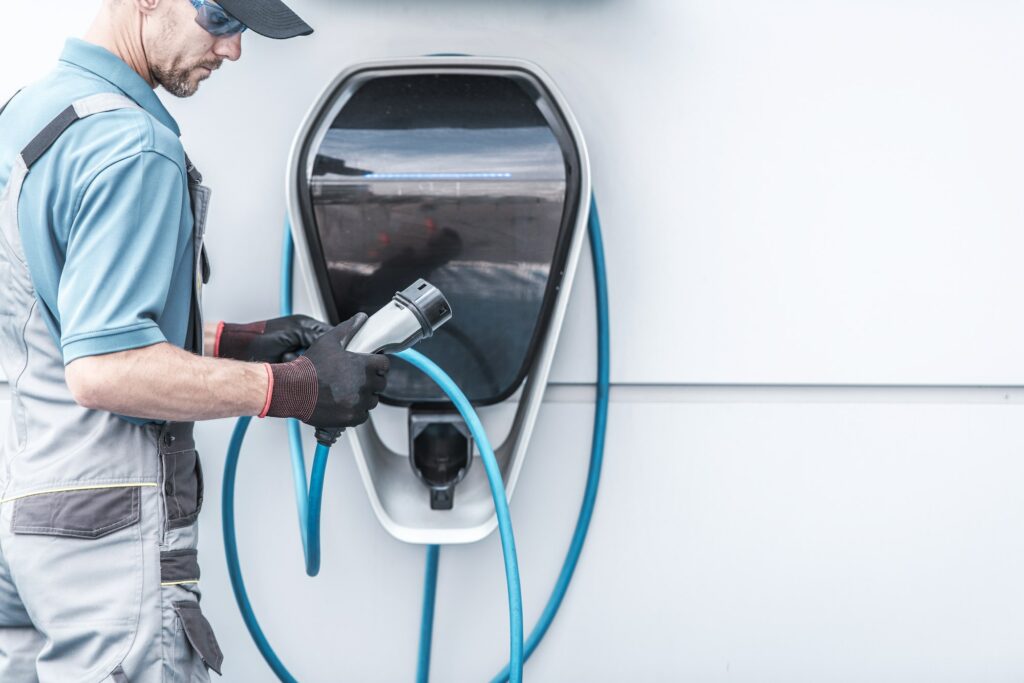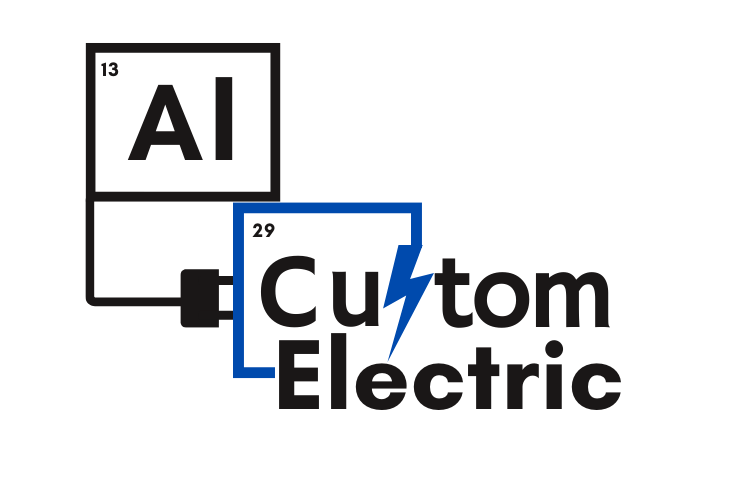Orlando's Trusted Electric Car Charger Installation

The number of electric vehicles on the roads of Central Florida is growing each day. With that growth comes the need to install EV chargers in homes. A home EV charger can open up a world of benefits for Central Florida residents, from cost savings on fuel to improved emissions. Installing a home EV charger gives you the freedom to charge your electric vehicle whenever you need to, and the convenience of being able to charge your car from the comfort of your own home. You can also benefit from tax credits and other incentives associated with installing a home EV charger. With all these advantages, it is easy to see why more and more Central Florida residents are choosing to install an EV charger in their homes.
- Cost Efficient
- Time-Saving
- Inquire as to EV Charger Level Needed
- Convenient Placement
- Models Based Upon Your EV Manufacturer's recommendtion
- Honest Pricing
The many benefits of EV Charger Installation
Installing an EV charger in your Central Florida home has a wide range of benefits. One of the most obvious benefits is the convenience of having a charging station right in your own home. This means that you can charge your vehicle when it is convenient for you, without having to go out of your way to find a public charging station.
Another benefit of installing a home EV charger is the cost savings. Depending on your utility rates, you could save money on electricity by charging your vehicle at home. You can also save money on fuel costs, as electric vehicles are much cheaper to run than gasoline-powered vehicles. This can add up to significant savings over time.
In addition to the cost savings, home EV chargers can also help reduce emissions. Since electric vehicles produce fewer emissions than gasoline-powered vehicles, having a home EV charger can help reduce your carbon footprint. This can help improve air quality in your local area, as well as make a positive contribution to the environment.
Finally, installing a home EV charger can also open up a range of other benefits. Some utility companies offer special rates for EV owners, so you may be able to get a discount on your electricity bill. In addition, some states offer tax credits and other incentives for installing an EV charger in your home.
Cost Savings of Home EV Chargers
As mentioned above, one of the major benefits of installing a home EV charger is the cost savings. Depending on your utility rates, you could save money on electricity by charging your vehicle at home. In addition, electric vehicles are much cheaper to run than gasoline-powered vehicles, so you can save money on fuel costs as well.
For example, the average cost of electricity in Central Florida is around 10 cents per kilowatt-hour. So, if you charge your electric vehicle at home, you could save around $5.50 per month in electricity costs. This adds up to a total of around $66 per year in savings.
In addition to the cost savings, electric vehicles are also much cheaper to maintain than gasoline-powered vehicles. Since they have fewer moving parts, they require less maintenance and can last longer. This can save you a significant amount of money over the life of your vehicle.
How to Choose the Right EV Charger
When it comes to choosing the right EV charger for your home, there are a few things to consider. The first is the type of EV charger you need. There are two main types of EV chargers: Level 1 chargers and Level 2 chargers. Level 1 chargers are the most basic and are typically used for slow charging. They are usually the most affordable option, but they take the longest to charge an EV.
Level 2 chargers are more powerful and are usually used for faster charging. They are generally more expensive than Level 1 chargers, but they can charge an EV much faster. This can be especially helpful if you need to charge your vehicle quickly, such as before a long trip.
In addition to choosing the type of charger, you also need to consider the amperage of the charger. Most EV chargers range from 16 to 40 amps. The higher the amperage, the faster the charger can charge an EV. However, you need to make sure that your electrical system can handle the higher amperage. Check with your electrician or utility company to make sure you choose the right amperage for your home.
Installation Tips for EV Chargers
Once you have chosen the right EV charger for your home, the next step is to install it. Installing an EV charger can be a complicated process, so it is important to make sure you do it correctly. Here are a few tips to keep in mind when installing your EV charger:
- Hire a qualified electrician to install your EV charger. It is important to make sure that the charger is installed correctly and safely.
- Make sure the EV charger is connected to a dedicated circuit. This will ensure that the charger has enough power to charge your vehicle efficiently.
- Be sure to check your local building codes and other regulations for EV chargers. Some localities have specific requirements for how EV chargers should be installed which is why it is important to hire a licensed electrician.
- If possible, install the EV charger in a cool, dry location. This will help keep the charger from overheating and reduce the risk of any electrical fires.
- Make sure to use the correct type of cable for the EV charger. This will ensure that the charger is properly grounded and safe to use.
Following these tips can help ensure that your EV charger is installed correctly and safely.
Maintaining Your Home EV Charger
Once your EV charger is installed, it is important to make sure that it is maintained properly. This includes regularly checking the cable and connectors for any signs of wear or damage. If the cable or connectors show any signs of wear or damage, it is important to have them replaced as soon as possible.
In addition, it is important to make sure that the EV charger is kept clean. This means regularly cleaning the charger and cables with a mild detergent and warm water. This will help keep the charger in good working condition and reduce the risk of any electrical fires.
Finally, it is important to make sure that the EV charger is kept dry. This means keeping the charger away from any sources of moisture, such as water or rain. This will help prevent any electrical shorts or fires.
EV Charger Safety Tips
It is important to make sure that your EV charger is used safely. Here are a few safety tips to keep in mind when using your EV charger:
- Always make sure that the EV charger is plugged into a dedicated circuit. This will help ensure that the charger has enough power to charge your vehicle efficiently.
- Never touch the EV charger or cable while it is plugged in. This could cause an electric shock or other injury.
- Make sure that the EV charger is kept away from any sources of moisture. This will help prevent any electrical shorts or fires.
- Never leave the EV charger unattended while it is plugged in. This could cause an electrical fire or other damage.
Following these safety tips can help ensure that your EV charger is used safely and correctly.
Installing a home EV charger in your Central Florida home can open up a world of benefits, from cost savings on fuel to improved emissions. Not only can you benefit from the convenience of having a charging station right in your own home, but you may also be eligible for tax credits and other incentives for installing an EV charger. In addition, there are a number of public EV charging stations located throughout Central Florida, providing an easy and cost-effective way to charge your electric vehicle. With all these advantages, it is easy to see why more and more Central Florida residents are choosing to install an EV charger in their homes
- Residential & Commercial Troubleshooting
- EV Charger Installation
- LED Retrofitting
- Data and Networking
- Pool/Spa Hookup
- Security Camera Installation
- Whole-Home Surge Protection
- Generator & Transfer Switch Installation
